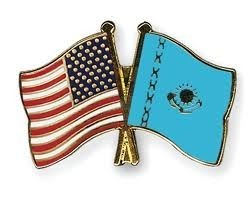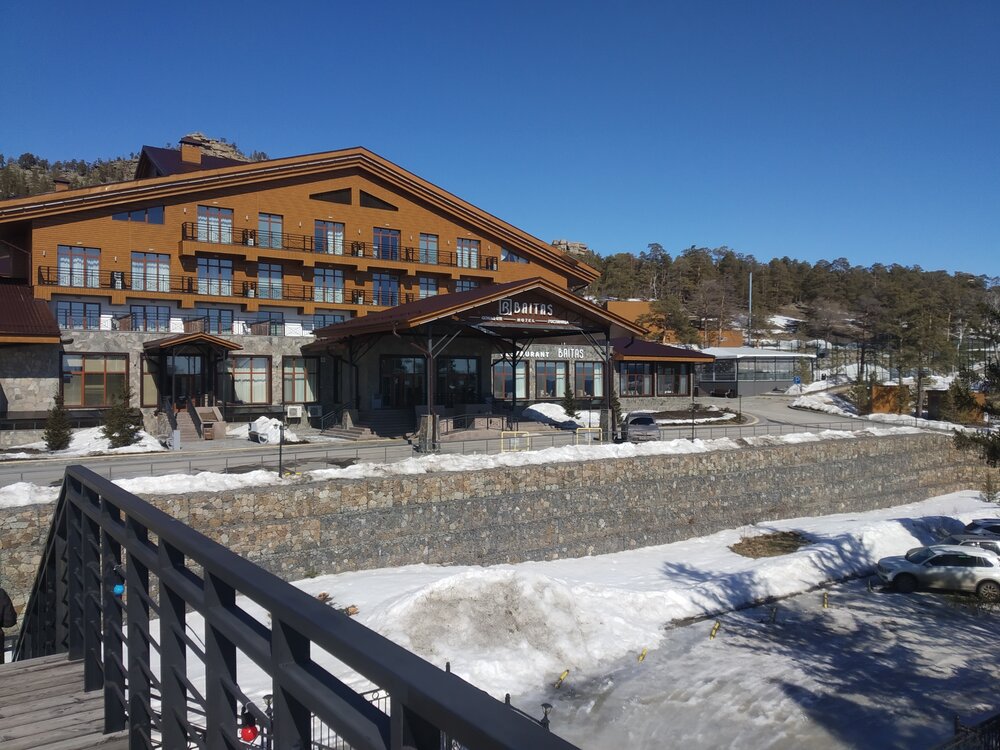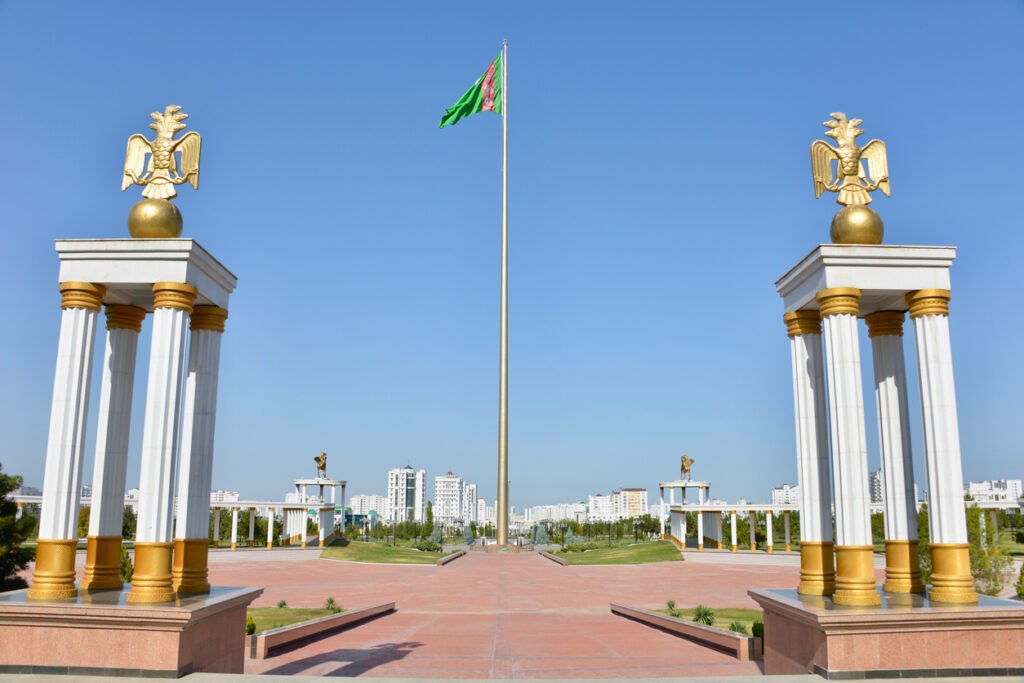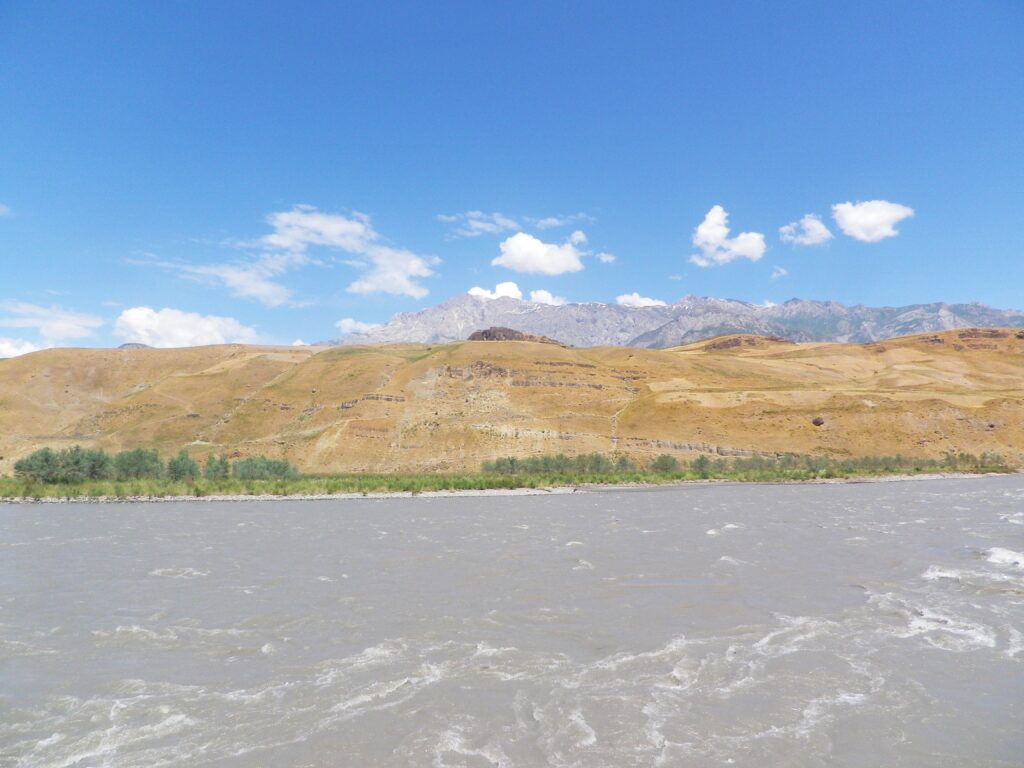ALMATY (TCA) — The U.S. Mission to Kazakhstan together with the Border Guard Service Academy (BGSA) of the National Security Committee of Kazakhstan on August 17 celebrated the opening of a new ‘Practical Interdiction Training Territory’. The hands-on training facility is located at the BGSA in Almaty and was supported by the U.S. State Department’s Export Control and Related Border Security (EXBS) program. Deputy Chief of Mission Theodore Lyng delivered opening remarks at the ceremony along with the Deputy Director of the BGSA, Colonel Daulet Zhumabekov. Participants included the U.S. Diplomatic Mission representatives and personnel of the BGSA.
The Practical Interdiction Training Territory (PITT) is a hands-on border interdiction training facility that includes a three-bay commercial vehicle inspection garage, a mock railway yard with two tracks and five rail cars, and a commercial aircraft training facility with a wide-body aircraft cabin. The BGS Academy will use the PITT to give instruction and realistic training scenarios on border crossing operations and smuggling interdiction. The facility will enhance the ability of the BGS Academy to train front line border security officers to prevent the illicit smuggling of weapons and weapons of mass destruction-related materials.
The BGSA is a regional training academy. The new facility will also be used to train cadets from Kyrgyzstan, Tajikistan, and Afghanistan on how to properly inspect multiple modes of transportation and interdict the smuggling of illicit transfers.
The $2.2 million used to complete this project was provided by the U.S. State Department’s Export Control and Border Security Program (EXBS) in recognition of Kazakhstan’s crucial role in global nonproliferation and regional security.
“Today’s event highlights the more than 25 strong and productive years of history and cooperation between our countries, particularly in the area of security and nonproliferation. Kazakhstan is an internationally recognized leader in nonproliferation, and we are proud to support the work of Kazakhstan’s Border Guards to detect and deter illicit trafficking across Kazakhstan’s international borders,” stated Deputy Chief of Mission Theodore Lyng.
The EXBS program was created in the early 1990s as a nuclear, chemical, and biological weapons non-proliferation program. EXBS assists countries in improving their export control laws and enforcement; including border controls to ensure the equipment and material means to create nuclear, chemical, and biological weapons are not traded or smuggled into the hands of regimes under sanctions or terrorist groups. EXBS has worked closely with the Border Guard Service of Kazakhstan since 2000 to improve regional border security and prevent proliferation of weapons of mass destruction and related materials. Since that time, EXBS has worked with the Border Guards to provide modular shelter sites, inspection and communication equipment, patrol boats, the exercise training facility as well as the new training territory.









